Canadian Rights With Police: Know Your Protections
Did you know that every year in Canada, there are over 2.3 million interactions between individuals and law enforcement?
When dealing with the police in Canada, it is crucial to understand your rights and protections. Whether you find yourself in a routine traffic stop or a more serious encounter, knowing your rights can make a significant difference in how you navigate these situations.
Key Takeaways:
- Knowing your rights when dealing with police interactions is essential to protect your interests and ensure fairness.
- You have the right to remain silent, the right to legal representation, and the right to be informed of the reason for your arrest.
- Police officers can stop you under certain circumstances, such as suspecting you’ve committed a crime or witnessing you in the act.
- During police interactions, you have the right to ask if you are under arrest, and if not, the reason for the stop.
- When stopped by the police, you are not obligated to answer questions except for providing identification when asked.
When Can the Police Stop You?
Police officers in Canada have the authority to stop individuals under specific circumstances. Understanding these situations helps you be aware of your rights and responsibilities during police interactions.
- Suspected Crime: The police can stop you if they have reasonable grounds to suspect you have committed a crime. This can include observed suspicious behavior or receiving information regarding your involvement in criminal activity.
- In the Act of Committing a Crime: If the police witness you committing a crime, they have the right to stop you immediately. It is important to note that this applies to both major and minor offenses.
- Driving: Police officers can also stop you if you are driving a vehicle. This can be for various reasons, such as routine traffic stops, checking for documentation, or ensuring the safety of the roadways.
If the police do not have sufficient grounds to arrest or detain you, they must allow you to continue your activities. It is within your rights to ask the police if you are under arrest or detention and to inquire about the reason for the stop.
| Police Powers | Your Rights |
|---|---|
| The police can stop you if they suspect you have committed a crime. | You have the right to ask if you are under arrest or detention and to ask for the reason behind it. |
| The police can stop you if they witness you committing a crime. | You have the right to be informed of the reason for the stop. |
| The police can stop you if you are driving a vehicle. | You have the right to ask if you are under arrest or detention and to ask for the reason behind it. Additionally, you have the right to refuse to answer the police’s questions, except for providing identification when asked. |
It is important to note that you are not obligated to answer the police’s questions, except in the specific case of a car accident where not providing answers may result in charges. Understanding your rights is crucial to protect yourself during police stops.
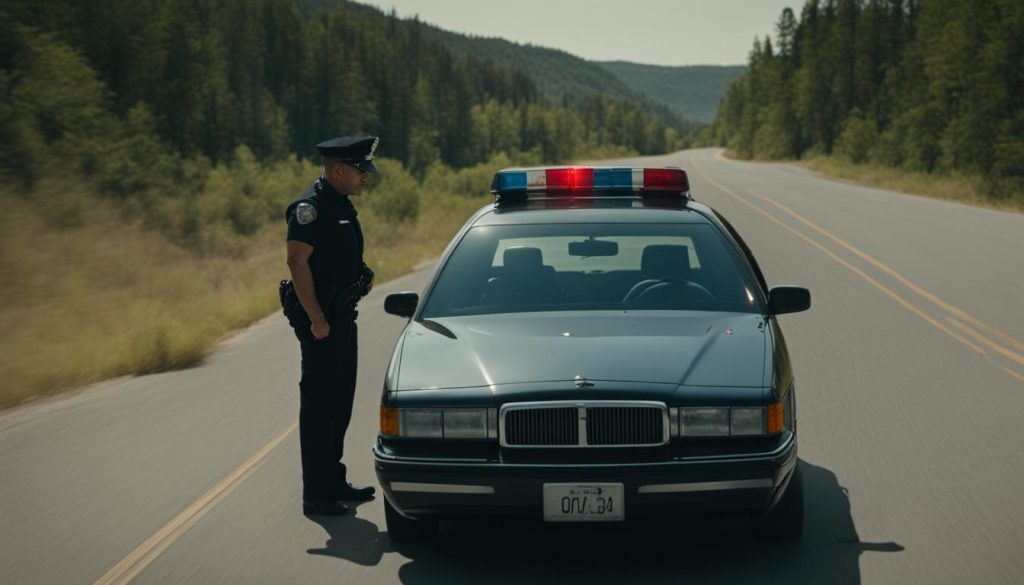
Know Your Rights: Canadian Police Conduct Guidelines
What Are Your Rights When Stopped by the Police?
When stopped by the police in Canada, it is essential to understand your legal rights and how to protect them. Being aware of your rights can help you navigate these situations confidently and ensure that your rights are respected. In this section, we will discuss the rights you have when stopped by the police, including your right to remain silent and your obligations when it comes to providing identification.
First and foremost, it’s important to know that you have the right to remain silent when stopped by the police. This means that you are not obligated to answer any questions they may ask, except for providing identification when specifically asked. You have the right to politely decline to answer any other questions without facing any consequences.
Additionally, you have the right to know whether you are under arrest or being detained. If you are being detained, the police must have reasonable grounds to suspect that you are involved in a crime. Understanding whether you are under arrest or detention can help you assess your situation and make informed decisions about exercising your rights.
When it comes to providing identification, it is generally required when stopped by the police. The police have the authority to request your identification, such as driver’s license or other government-issued identification, to establish your identity. It is important to provide this information when asked, as refusing to do so can potentially lead to further complications.
It’s crucial to remember that while the police have the power to conduct certain actions during a stop, they must have reasonable and probable grounds to search your car. They cannot search your vehicle without these grounds, but it is worth noting that they can look into the windows of your car. Understanding your rights in these situations can help you stay informed and assert your rights effectively.
To summarize, when stopped by the police, remember:
- You have the right to remain silent and are not obligated to answer any questions, except for providing identification when specifically asked.
- You have the right to know if you are under arrest or being detained, and the police must have reasonable grounds to detain you.
- Be prepared to provide identification when asked, as it is generally required during police stops.
- The police cannot search your car without reasonable and probable grounds, but they can look into the windows of your car.
Knowing and asserting your rights when stopped by the police is crucial. By understanding your legal protections, you can ensure that you navigate these encounters confidently while safeguarding your rights.

Your Rights When Interacting With the Police While Driving
When you are pulled over by the police while driving in Canada, it is essential to understand your rights. Knowing what you are entitled to can help ensure that your interactions with law enforcement are fair and respectful.
First and foremost, when you are stopped by the police, you must provide your driver’s license, car registration, and proof of insurance. This documentation allows the police to verify your identity and ensure that you are driving a legally registered and insured vehicle.
The police have the authority to stop cars to check for documentation, as well as to assess the mechanical soundness of the vehicle and determine if the driver is intoxicated. These measures are in place to maintain road safety and enforce compliance with traffic laws.
During a traffic stop, you have the right to know the reason for the stop. If the police fail to provide a valid reason, you can ask for clarification. Additionally, you have the right to remain silent. While it is generally advisable to cooperate with the police, you are not obligated to answer their questions beyond providing the necessary identification.
It is crucial to note that during a traffic stop, some of your rights may be temporarily suspended. For example, your right to counsel may be limited given the time-sensitive nature of traffic-related matters. However, it is always a good idea to consult with a lawyer if you have any doubts or concerns about your rights during a traffic stop.
Remember, understanding your rights when interacting with the police while driving can help protect your legal interests and ensure that the process is conducted lawfully and respectfully.
Your Rights If Arrested by the Police
If you find yourself in a situation where you are placed under arrest by the police, it is crucial to be aware of your rights. Understanding your rights can help protect you and ensure fair treatment throughout the legal process.
When you are arrested, the police have the authority to search you, your clothing, and any items you may be carrying. This is done in order to ensure the safety of the officers and to prevent the destruction of evidence. It is important to note that the search should only extend to what is necessary and reasonable for the circumstances.
The police are also required to inform you of the reason for your arrest. This is your right as per Canadian law, as it allows you to understand the charges brought against you and the basis for your arrest.
One of the most important rights you have when arrested is the right to remain silent. This means that you have the choice to not answer any questions posed to you by the police. It is advisable to exercise this right and refrain from making any statements without the presence of a lawyer.
Speaking to a lawyer is crucial in protecting your legal rights. The police must provide you with the means to contact legal representation, whether it is by phone or other appropriate methods.
Consulting with a lawyer before answering any further questions from the police can help ensure that your rights are being protected and that you are navigating the legal process correctly.
Remember, exercising your right to remain silent and seeking legal representation are essential steps to protect yourself if you are arrested. These rights are in place to safeguard individuals and uphold justice in the Canadian legal system.
| Your Rights when Arrested | Description |
|---|---|
| Right to be searched | Police have the authority to search you, your clothing, and any items you may be carrying during an arrest. |
| Right to be informed | The police must inform you of the reason for your arrest, ensuring that you have knowledge of the charges brought against you. |
| Right to remain silent | You have the choice to exercise your right to remain silent and not answer any questions posed to you by the police. |
| Right to legal representation | The police are required to provide you with the means to contact a lawyer, allowing you to seek legal advice and representation. |
What Are Your Rights Regarding Home Searches?
In Canada, it is crucial to understand your rights when it comes to home searches conducted by the police. These rights are designed to protect you from unreasonable search and seizure, ensuring your privacy and personal security. Let’s explore your rights and the powers of the police in relation to home searches.
When Can the Police Search Your Home?
The police can enter your home under specific circumstances, which generally require them to have a warrant. There are two types of warrants that authorize home searches: arrest warrants and search warrants.
- Arrest Warrants: The police can enter your home with an arrest warrant if they have reasonable grounds to believe that a person named on the warrant is present in your residence. This warrant is typically issued when someone is suspected of committing a crime and needs to be apprehended.
- Search Warrants: A search warrant allows the police to enter your home to search for specific evidence related to a crime. To obtain a search warrant, the police must convince a judge that there is a reasonable belief that evidence of a crime will be found on your property.
Other Circumstances Allowing Home Entry
In addition to warrants, there are other circumstances where the police can enter your home without one:
- Urgent Circumstances: If the police have reasonable grounds to believe that there is an immediate threat to someone’s life or safety, they can enter your home without a warrant to address the situation.
- Crime Committed Against You: If the police suspect that a crime has been committed against you or in connection to your residence, they can enter your home to investigate the situation.
Exercising Your Rights
Despite these circumstances, it is essential to know that you have rights when it comes to home searches:
- Refusing Entry: You have the right to refuse entry to the police if they do not have a warrant and the circumstances do not fall under one of the exceptions mentioned above.
- Requesting to See the Warrant: If the police have a warrant to enter your home, you have the right to ask to see it before allowing them to proceed with the search.
However, if the police have a valid warrant or if the circumstances allow them to enter without one, they can legally enter your home without your permission. It is crucial to remain calm, cooperate, and consult legal advice if you have any concerns about the search.
| Police Powers | Your Rights |
|---|---|
| Enter your home with a warrant | Refuse entry if no warrant or valid exception |
| Enter your home in urgent circumstances | Request to see the warrant |
| Enter your home if a crime has been committed against you | Remain calm and cooperate if the search is authorized |
Should You Speak to the Police?
When interacting with the police, it is crucial to consider seeking legal advice before speaking to them. You have the right to remain silent and the right to legal representation under Canadian law. It is important to be aware that anything you say to the police can be used as evidence against you. Therefore, exercising your right to remain silent can protect your interests in a legal context.
If the police request an interview or questioning, it is highly recommended to consult with a lawyer before deciding whether to participate. Legal advice can ensure that you fully understand your rights and the potential implications of any statements you may make. Talking to the police without a lawyer present can leave you vulnerable and may lead to unintended consequences.
It is crucial to note that there is no concept of speaking to the police “off the record” in Canada. Anything you say, whether on or off the record, can be used against you in a legal proceeding. Therefore, it is always advisable to exercise caution and obtain legal advice before engaging in any conversations or statements with the police.

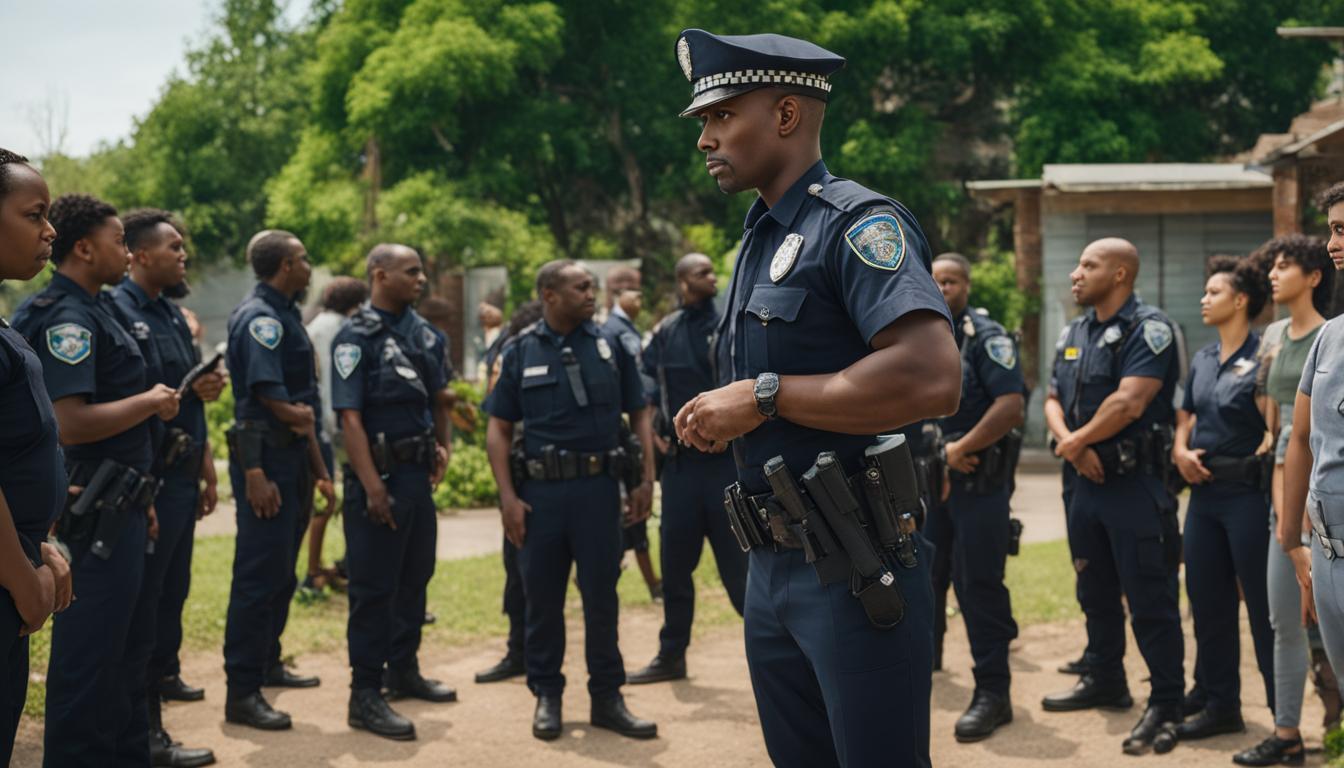
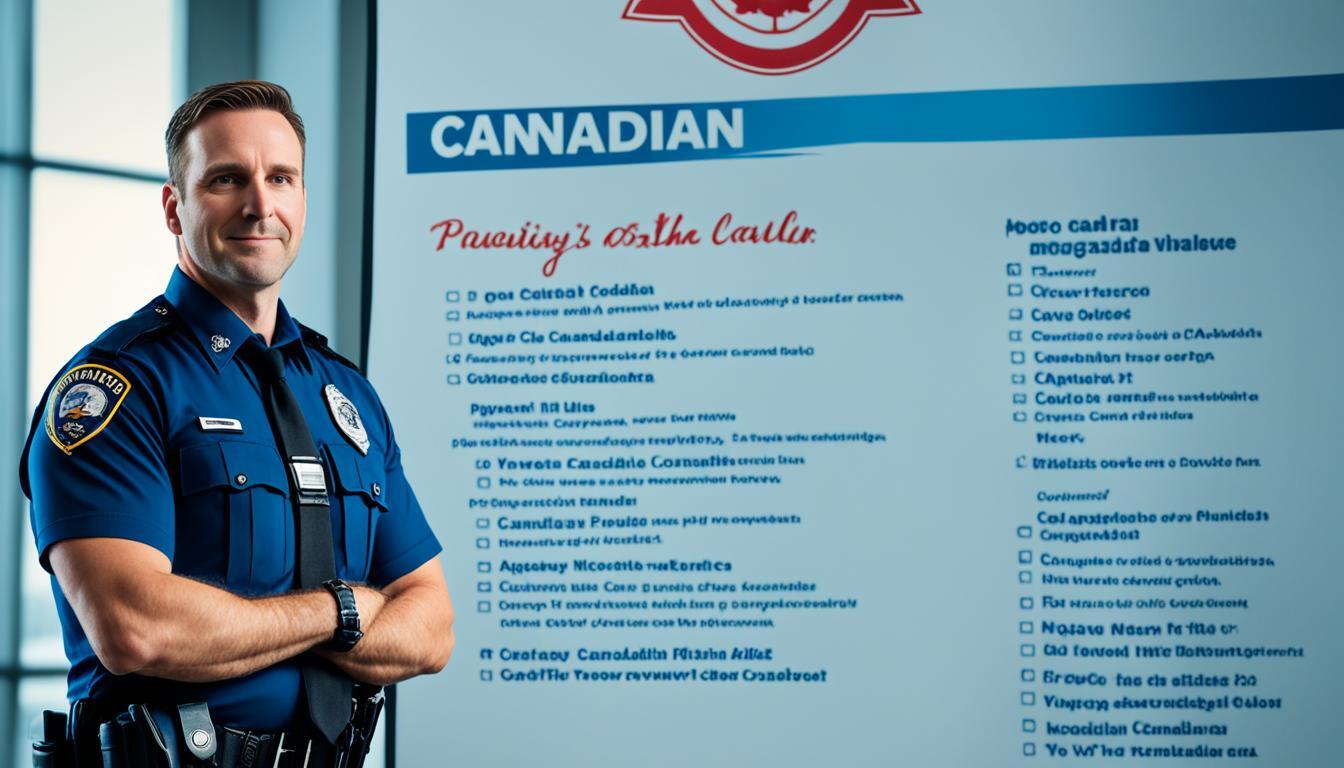
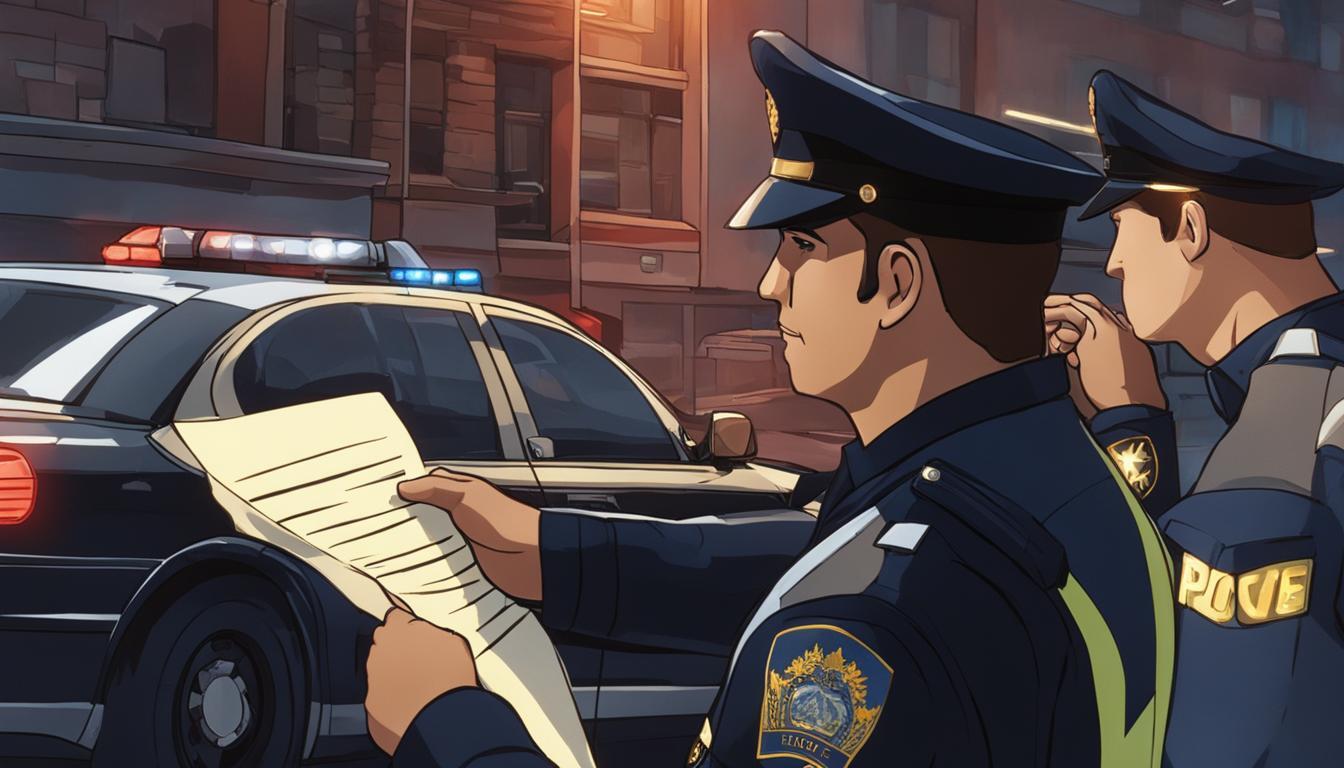

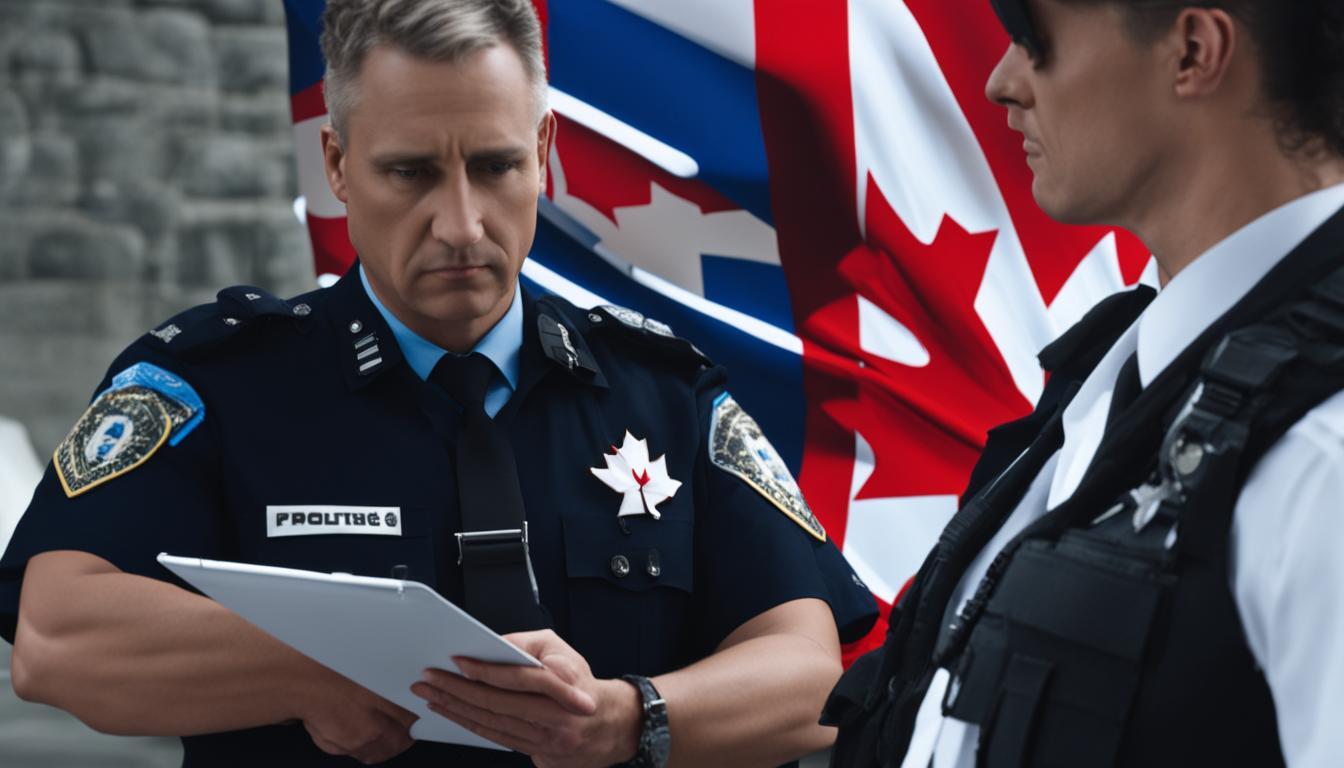














Post Comment Cancel reply